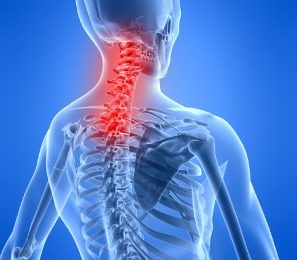Any kind of pain in your spine can be debilitating. It reduces normal functioning and it can radiate to other parts of your body making it difficult to perform daily activities.
It’s important to understand the symptoms of your pain In order to address its effects. Sometimes, symptoms may overlap making it difficult to differentiate what is causing what. When it comes to neck pain and concussions, dysfunction in the neck can also have similiar symptoms as a concussion.
Overlapping symptoms make diagnosis difficult, so knowing the difference between the two can help you find effective treatment.
Neck pain
Neck pain is prevalent between 1.7 percent and 11.5 percent of all people at any given time. It can be caused by neck strains, injuries or other trauma.
Causes
Traumatic injuries—including whiplash—is the leading cause of neck pain. When the connective tissues and muscles are injured, it causes pain. When you overuse your neck muscles and exert pressure on them, you can cause stiffness and pain—this is especially the case for people with poor posture. In fact, poor posture in of itself can cause neck pain without the presence of trauma or injury.
Other musculoskeletal disorders and degeneration are also increasingly responsible for neck pain. The narrowing of the vertebral canal or a herniated disc can put pressure on the nerves and result in pain in the neck.
Symptoms
Neck pain is either felt in a specific region—axial pain—or it may radiate along your nerves to your limbs—radicular pain. Some of the symptoms you may experience are:
- Headaches
- Stiffness
- Nausea, dizziness, and vomiting
- Light sensitivity
- Tingling sensation in your arms and fingers
- Consistent pain regardless of physical activity
- Loss of balance
Concussion
Traumatic brain injuries or TBI are usually caused by concussions or other head trauma. Studies have suggested that people suffer between 1.7 and 3 million concussions related to sports and recreation alone each year. This is a growing concern for people—especially youth—who participate in contact sports such as football, hockey and combat sports such as boxing and mixed martial arts.
Causes
TBI can lead to a loss of normal brain functioning for a certain period of time. Concussions may be caused by trauma to the head which causes your brain to move inside your head. TBI can alter your brain’s functioning even if you don’t lose consciousness.
Concussions can be caused by any activity involving violently shaking, bumping your head, or jolts to the head. This includes motor vehicle accidents, sports injuries from playing contact sports and falls. Even non-contact sports such as water skiing which cause the head to shake while riding on rough water can cause micro-concussions which, over time, can have the same effects as one severe concussion.
Symptoms
Studies have reported that the symptoms of a concussion are usually resolved within 7–10 days. This complex pathophysiologic process affects your brain and body in various ways, some of them are:
- Neck pain
- Headaches
- Dizziness
- Memory loss
- Eyesite loss
- Fatigue
- Poor concentration
Conclusion
There are a number of overlapping symptoms of neck pain and concussions that you may experience. Both conditions cause physical pain in your head and neck and disturb your brain’s functioning.
Research into the two conditions shows that the symptoms of a concussion often last longer–for a few weeks or even months after sustaining trauma. Neck pain, on the other hand, is more persistent. Either way, it’s essential that you seek medical assistance since the overlapping symptoms make it difficult to deal with your pain effectively.
If you’ve injured your head in an accident or while playing contact sports or you’re experiencing headaches after participating in activities that have caused your head to shake violently, see your doctor immediately. You may need a referral to a neurologist or neurosurgeon to get the most appropriate treatment as early as possible. The sooner you treat a concussion, the better your chances of having a full recovery.
The qualified neurosurgeons at our neurosurgery and spine center, are some of the top professionals in the country. They specialized in effective non-surgical and minimally-invasive treatments to relieve neck pain or help you recover from concussions.
Working with our skilled team, you’ll undergo various diagnostic tests and treatment solutions using the latest technology to improve your chances at recovery.
Pain isn’t a way of life—you don’t have to live with it. Contact us by calling our neck pain center Houston at 832.522.8500 to schedule an appointment.

